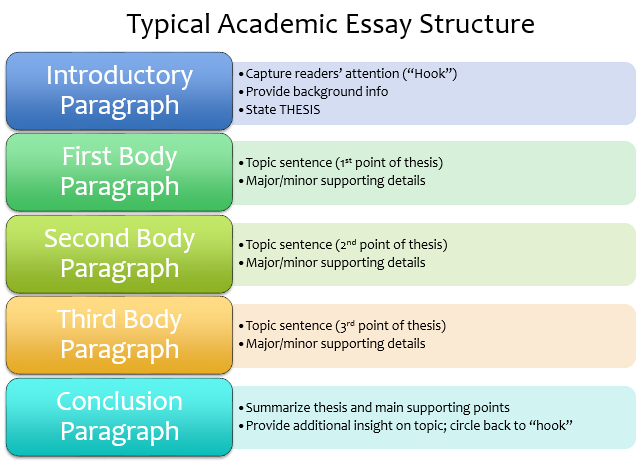There are so many essay types that students find it hard to understand the difference. As a rule, learners make mistakes because they write descriptive or critical papers instead of analytical ones. That is why it is essential to know how to write an analytical essay. This table can help them spot the difference.
| Analytical writing | Descriptive writing | Critical writing |
|---|---|---|
| A student analyzes a text to identify the cause and the effect of something. | A student depicts an event, a place, or a person. Due to that, he can classify things and compare them. | Except for a paper analysis, a person also pays attention to every detail, including terms, to identify the significance of a paper. |
What to Write About in Analytical Papers?
Tutors ask students to perform an analytical assignment because they want to test their students’ writing skills. They must be able to divide a text into meaningful pieces to comprehend the text as a whole. Professionals identify five types of analytical writing.
- A definition essay type lets students understand the nature of things. To write it, a student should divide a topic into pieces to realize its meaning.
- Students analyze two objects in detail to find similarities and distinctions for a decent comparison in a compare and contrast essay.
- Process writing helps students see how everything works, consequently, it involves deep analysis of things.
- Cause and effect is the most popular subtype of an analytical essay. Only skillful and knowledgeable students can create such a term or thesis paper.
- Classification is another analytical method that involves thorough research of the topic and the related themes.
How to Write an Analytical Essay to Get the Desired “A”?
Every academic assignment includes several small tasks that a student has to perform. An analytical paper is not an exception. To create a good paper, students should take the following steps.
- Select a topic
- Frame the idea with vivid facts
- Outline a paper to structure it properly
- Create an essay
- Proofread and edit a paper
The best way is to clear out every step.
Topic selection
A student performs the analytical essay writing to contrast, analyze, classify, or define things. That is why topics can be different. One should select a topic, depending on personal needs or requirements of the surrounding. One should orient on the two question words: Why and How. These are five samples of analytical essay topics.
- Why can a child face self-identification problems in a multicultural family?
- Why is it logical to regard Jesus’s resurrection as a climax of the Bible?
- How does body size influence a person’s physical and psychological comfort?
- Why do top-rated sportsmen take doping, being aware of the consequences of their disclosure?
- Why do twins often have different traits of character and beliefs?
Note! One should not confuse a topic and a title. A title must be more precise and introduce the result of the research.
Research
A person cannot write an informative essay without facts. It is essential to take information only from verified sources. If information is doubtful, one should use other books or periodicals to verify or disprove it. Investigation of literature helps students choose a strong argument and develop a convincing thesis statement. The websites below can be more than helpful.
Planning
A plan is a mirror of writing intentions. Outlining allows students to organize ideas logically and fill in the information gaps. Those who have an outline write a paper faster. Moreover, their writing sounds convincing and smart because a student sees what parts need facts and improvement. A typical analytical essay includes:
- an introduction (a hook + a thesis statement)
- a body (1-3 paragraphs, each one has a topic sentence and supporting facts)
- a conclusion (paraphrased restatement of a thesis statement with conclusion + a hook)
Writing
The main sentence of a paper is a thesis statement. One should create it and connect the whole text to it. So, the first thing to do is to choose a viewpoint. Then, one should create the body. This part is the biggest and discusses the argument with the help of facts and thoughts of a student. Afterward, a student summarizes everything in the final paragraph.
Professors pay attention to the introduction and the conclusion in the first place. So, students should start and conclude strongly. Such hooks as verified facts, quotes of outstanding personalities, and argumentative questions are the best hooks. These two parts must not be long and blurred. Educators welcome only precise and striking expressions.

Editing and Proofreading
The last step is to make sure the essay lacks grammar and lexical mistakes. Many writing tools can be useful. Grammarly, ProWritngAid, Hemingway App, CiteThisforMe, and other websites help to find typical mistakes, hard-to-read sentences, typos, and other errors. One can also ask professional editors to help so as not to miss a single mistake and lose points because of that.
Everyone agrees that it is hard to write an analytical paper without detailed guides and top-level samples. Below, one can find three links to samples and a guide from top-rated professionals.
- Analytical essay sample on “The Metamorphosis” by Franz Kafka
- Guide how to write an analytical essay: making things clear
- Analytical essay sample on same-sex marriage and artificial insemination
Conclusion
Analytical writing is demanding. Though it is a bit simpler than a critical one, a student should manifest great thinking and writing skills. Students also show how deep they can research to develop the topical idea. If students need help with an analytical assignment, custom writers are ready to assist at any moment and day. One should just explain the problem and introduce college requirements to get online essay help.